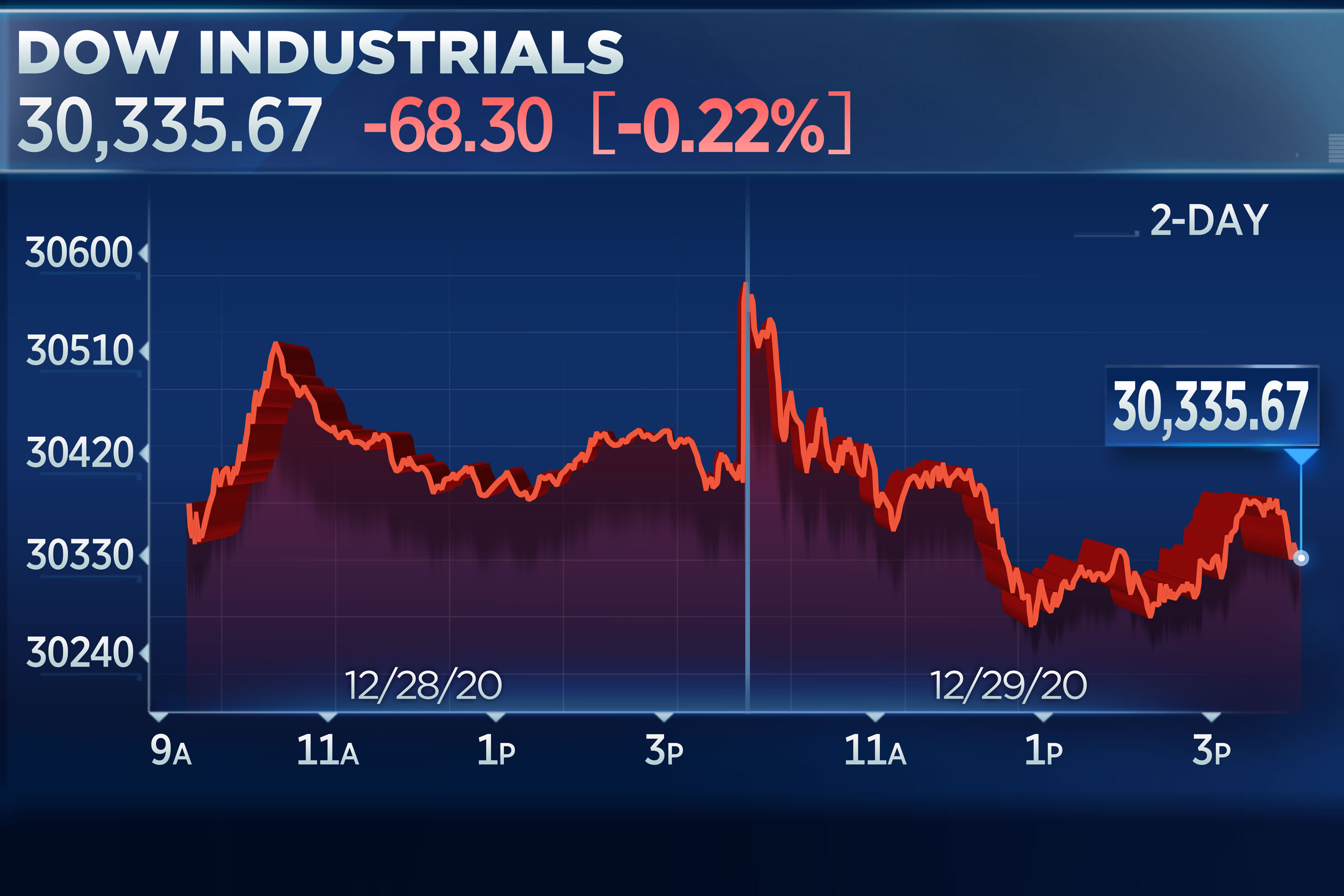Stocks slip after hitting fresh record highs, Dow down 100 points

Stocks slipped on Tuesday after reaching fresh all-time highs as traders weighed the possibility of even more fiscal stimulus being approved by Congress.
The Dow Jones Industrial Average traded 109 point lower, or 0.4%. The S&P 500 dipped 0.3%, and the Nasdaq Composite fell by 0.6%. All three of the major averages hit record highs at the open. At its session high, the Dow was up more than 100 points.
The House passed a bill late Monday to increase the direct payments to $2,000 from the $600 included in a relief package recently signed by President Donald Trump. Trump had previously called for a $2,000 direct payment to Americans.
Senate Republicans have opposed larger direct payments despite Trump’s demands. However, several GOP senators have expressed support for the $2,000 checks. Sen. Josh Hawley, R-Mo., tweeted: “We’ve got the votes. Let’s vote today.”
Wall Street was coming off a strong session, with sentiment boosted by Trump signing a $900 billion coronavirus relief package into law.
“The combination of vaccine rollouts, fiscal stimulus, and easy monetary policy continues to create a positive backdrop for equities going into 2021,” wrote Mark Haefele, chief investment officer at UBS Global Wealth Management. “The agreement on a fresh U.S. fiscal stimulus package removes a recent hurdle, and global central banks continue to support the recovery by maintaining (and extending) monetary accommodation.”
Stocks are heading into year-end with surprisingly strong gains. Entering Tuesday’s session, the S&P 500 was up 15.6% for 2020 and the Dow up 6.5% over that time period. The Nasdaq Composite, meanwhile, has surged more than 43% in 2020 as investors flocked into major tech names such as Apple, Amazon and Facebook.
The number of coronavirus cases keeps rising in the U.S., however, casting doubt over the economic recovery heading into the new year. Over the past week, at least 184,000 new infections have been reported in the U.S. per day, according to a CNBC analysis of Johns Hopkins University data.
“Vaccine distribution has now officially begun … yet the pandemic has reached concerning levels on multiple fronts,” wrote Jason Pride, CIO of private wealth at Glenmede.
“The viral resurgence has induced lockdown measures throughout the country, stunting economic reopening efforts. If the viral spread is not brought under control by year-end, it will likely be a key initiative to do so in early 2021 before a vaccine has become widely distributed,” Pride added.
Subscribe to CNBC PRO for exclusive insights and analysis, and live business day programming from around the world.




